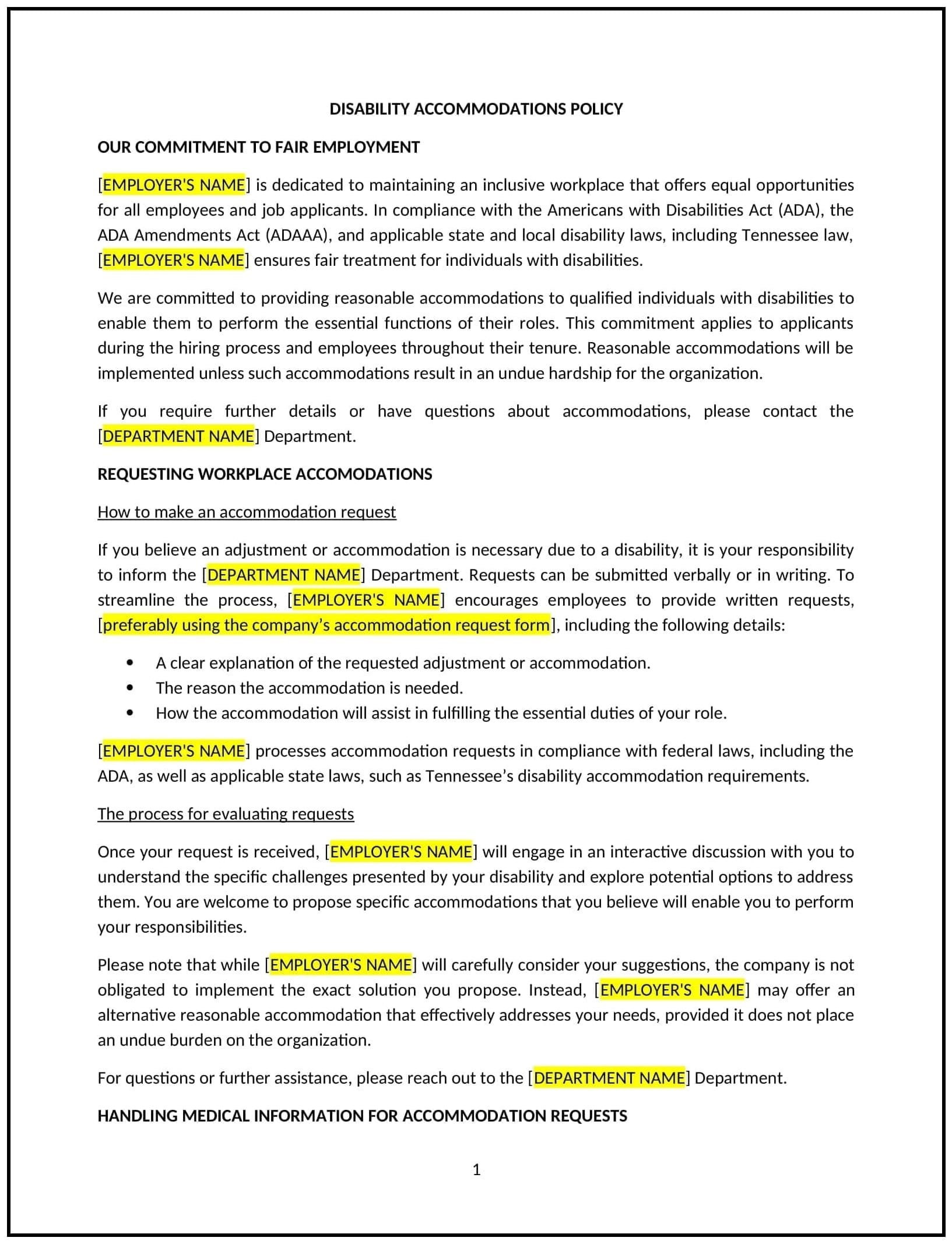Disability accommodations policy (Tennessee): Free template
Got contracts to review? While you're here for policies, let Cobrief make contract review effortless—start your free review now.

Customize this template for free
Disability accommodations policy (Tennessee)
This disability accommodations policy is designed to help Tennessee businesses establish guidelines for providing reasonable accommodations to employees with disabilities. It outlines procedures for requesting accommodations, evaluating needs, and implementing solutions to support employees in performing their job duties.
By adopting this policy, businesses can foster an inclusive workplace, support employee well-being, and align with best practices for accessibility and accommodation.
How to use this disability accommodations policy (Tennessee)
- Define reasonable accommodations: Clarify what constitutes a reasonable accommodation, such as modified work schedules, assistive technology, or workspace adjustments.
- Set request procedures: Provide steps for employees to request accommodations, including required documentation and timelines.
- Evaluate requests: Outline how accommodation requests will be reviewed, including interactive discussions with the employee.
- Implement accommodations: Specify how approved accommodations will be implemented and monitored for effectiveness.
- Train managers: Educate supervisors on handling accommodation requests and maintaining an inclusive workplace.
- Review and update: Assess the policy annually to ensure it aligns with evolving business needs and employee expectations.
Benefits of using this disability accommodations policy (Tennessee)
This policy offers several advantages for Tennessee businesses:
- Fosters inclusivity: Demonstrates a commitment to supporting employees with disabilities.
- Enhances employee well-being: Helps employees perform their job duties effectively and comfortably.
- Reduces turnover: Builds loyalty by showing employees that their needs are valued.
- Promotes productivity: Ensures employees have the tools and support they need to succeed.
- Aligns with best practices: Supports a workplace culture of accessibility and inclusion.
Tips for using this disability accommodations policy (Tennessee)
- Communicate the policy: Share the policy with employees and include it in the employee handbook.
- Provide training: Educate managers on handling accommodation requests and fostering inclusivity.
- Monitor compliance: Regularly review accommodation requests and implementation processes.
- Address issues promptly: Take corrective action if accommodation requests are mishandled or denied improperly.
- Update regularly: Assess the policy annually to ensure it aligns with evolving business needs and employee expectations.